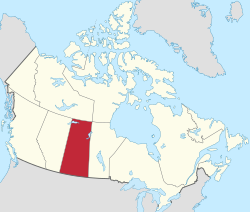| Constitution Act, 1867 |
|---|
| Part of the Constitution of Canada |
| PREAMBLE |
| I. PRELIMINARY |
| 1, 2 |
| II. UNION |
| 3, 4, 5, 6, 7, 8 |
| III. EXECUTIVE POWER |
| 9, 10, 11, 12, 13, 14, 15, 16 |
| IV. LEGISLATIVE POWER |
| 17, 18, 19, 20 |
| The Senate |
| 21, 22, 23, 24, 25, 26, 27, 28, 29, 30, 31, 32, 33, 34, 35, 36 |
| The House of Commons |
| 37, 38, 39, 40, 41, 42, 43, 44, 45, 46, 47, 48, 49, 50, 51(1), 51(2), 51A, 52 |
| Money Votes; Royal Assent |
| 53, 54, 55, 56, 57 |
| V. PROVINCIAL CONSTITUTIONS Executive Power |
| 58, 59, 60, 61, 62, 63, 64, 65, 66, 67, 68 |
| Legislative Power |
| 69, 70, 71, 72, 73, 74, 75, 76, 77, 78, 79, 80, 81, 82, 83, 84, 85, 86, 81, 82, 83, 84, 85, 86, 87, 88, 89, 90, 90Q, 90S |
| VI. DISTRIBUTION OF LEGISLATIVE POWERS |
| 91, 92, 92A, 93, 93A, 94, 94A, 95 |
| VII. JUDICATURE |
| 96, 97, 98, 99, 100, 101 |
| VIII. REVENUES; DEBTS; ASSETS; TAXATION |
| 102, 103, 104, 105, 106, 107, 108, 109, 110, 111, 112, 113, 114, 115, 116, 117, 118, 119, 120, 121, 122, 123, 124, 125, 126 |
| IX. MISCELLANEOUS PROVISIONS |
| 127, 128, 128Q, 129, 130, 131, 132, 133, 134, 135, 136, 137, 138, 139, 140, 141, 142, 143, 144 |
| X. INTERCOLONIAL RAILWAY |
| 145 |
| XI. ADMISSION OF OTHER COLONIES |
| 146, 147 |
| SCHEDULES |
| First: Electoral Districts of Ontario Second: Electoral Districts of Quebec Third: Property of Canada Fourth: Property of Ontario and Quebec Fifth: Allegiance and Senate Qualification Sixth: Natural Resources |
| COMING INTO FORCE |
| Proclamation of the Constitution Act, 1867 |
Sections 90Q and 90S of the Constitution Act, 1867 (French : articles 90Q et 90S de la Loi constitutionnelle de 1867) are provisions of the Constitution of Canada relating to the autonomy of the provinces of Quebec and Saskatchewan within the Canadian confederation, added in 2022 and 2023, respectively. [1] [2] These provisions were added to the Constitution by amendments made by their respective provincial legislative assemblies using the unilateral amending procedure set out in section 45 of the Constitution Act, 1982 . [3] [4]
Contents
- Background
- Constitution Act, 1867
- Section 45 of the Constitution Act, 1982
- Section 90Q (Fundamental Characteristics of Quebec)
- Background 2
- Text of section 90Q
- Purpose and interpretation
- Section 90S (Saskatchewan)
- Background 3
- Text of section 90S
- Purpose and interpretation 2
- Related provisions
- See also
- References
Section 90Q was added to the Canadian Constitution by the National Assembly of Quebec passing Bill 96 in 2022, which made updates to the Charter of the French Language, entrenching French as the only official language of Québec and French as the common language of the Québec nation. [1]
Section 90S was added to the Canadian Constitution by the Saskatchewan Legislature passing the Saskatchewan First Act in 2023, which made changes to the Constitution of Saskatchewan, asserting Saskatchewan's autonomy and constitutional jurisdiction over its natural resources. [2]





